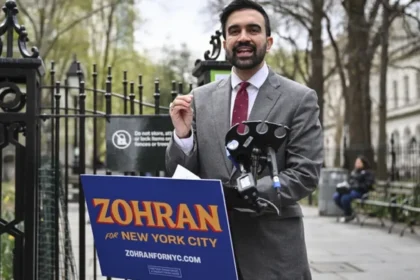Tensions between the federal government and state leaders in Oregon escalated sharply this weekend after U.S. Secretary of Defense Pete Hegseth ordered 200 Oregon National Guard soldiers into federal service. The deployment, signed off in a memorandum addressed to the state’s top military officer, places the troops under federal authority for a 60-day period. The move has already ignited a political firestorm, with Oregon’s Democratic leadership filing a federal lawsuit to block the action.
The memorandum, made public Sunday, stated that the soldiers would be “called into Federal service effective immediately.” The order followed a declaration by President Donald Trump on Saturday that he intended to send forces into what he described as “war-ravaged Portland,” referring to Oregon’s capital.
A Clash Over Authority
While the federal government argues the deployment is necessary to restore law and order, Oregon officials say it is an overreach that undermines state sovereignty. The lawsuit, filed by the state’s attorney general, challenges the legality of placing state guard troops under federal command without the governor’s consent.
“This is not about security—it’s about politics,” said one state official, pointing to Oregon’s ongoing disputes with the Trump administration over immigration, policing, and social policies. “The state of Oregon has the authority to manage its own National Guard unless there is a clear federal emergency, and this is not it.”
The Situation in Portland
For years, Portland has been a flashpoint of political and social unrest, with protests, counter-protests, and sporadic violence drawing national attention. Trump has repeatedly targeted the city as a symbol of what he calls “Democratic failure to control crime.” His labeling of Portland as “war-ravaged” sparked backlash among state leaders and residents, who accused the president of exaggerating the city’s challenges to justify federal intervention.
Local officials insist that crime rates, while higher than average, do not justify a military-style deployment. Community groups also warned that the presence of federally controlled troops could inflame tensions rather than ease them.
Historical Precedent
Deployments of National Guard units under federal authority are rare and often controversial. Typically, governors maintain command of their state’s guard unless activated for overseas duty or specific emergencies authorized by Congress. Federalizing a guard unit without a governor’s approval has historically led to heated political disputes, highlighting the delicate balance between state and federal powers.
In this case, Oregon Governor Tina Kotek has made it clear she does not support the federal order, describing it as “an unacceptable intrusion into the affairs of our state.” Her office emphasized that Oregon has the capacity to manage its own security needs without federal intervention.
Legal and Political Implications
The federal lawsuit filed by Oregon could set the stage for a broader constitutional fight over the limits of presidential power. Legal experts say the case may hinge on interpretations of the Insurrection Act and other federal statutes that allow the president to assume control over state guard units.
Critics of the deployment argue that the administration is using the military for political gain, particularly as Trump faces mounting pressure on other domestic issues. Supporters, however, claim the president is within his rights to ensure peace and stability in areas he deems threatened.
What Happens Next
For now, the 200 guard soldiers remain on federal orders, though their actual role in Portland is still unclear. Pentagon officials have not provided details on their assignments or whether they will be deployed directly into the city. The lawsuit could quickly alter the timeline, especially if the courts grant an injunction blocking the order.
Meanwhile, residents of Portland are left uncertain about what the coming weeks will bring. Many fear the arrival of troops under federal control will heighten tensions in an already divided city. Others hope their presence might help deter further unrest.
What is clear is that the deployment has reignited longstanding debates over states’ rights, federal power, and the role of the military in domestic affairs. With both sides digging in, the outcome may shape not just the immediate situation in Oregon but also future conflicts between state and federal governments.
At its core, the dispute reflects two competing visions of governance: one emphasizing federal authority to impose order, and the other defending state autonomy against what leaders see as unconstitutional overreach. How this standoff unfolds could resonate far beyond Oregon, testing the boundaries of American federalism in a politically charged moment.











